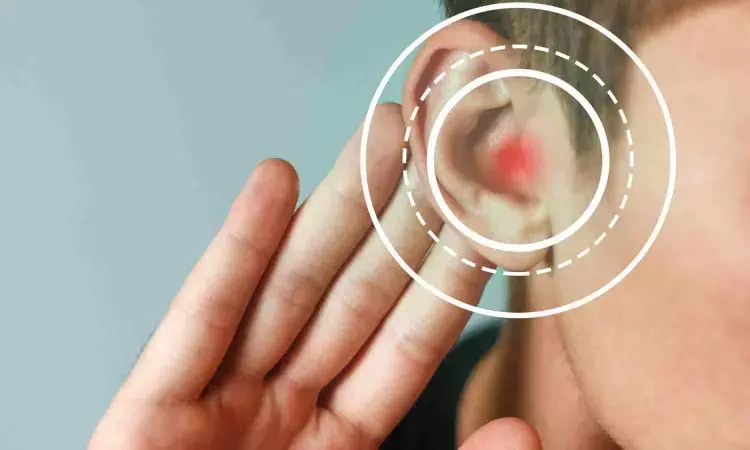- Home
- Medical news & Guidelines
- Anesthesiology
- Cardiology and CTVS
- Critical Care
- Dentistry
- Dermatology
- Diabetes and Endocrinology
- ENT
- Gastroenterology
- Medicine
- Nephrology
- Neurology
- Obstretics-Gynaecology
- Oncology
- Ophthalmology
- Orthopaedics
- Pediatrics-Neonatology
- Psychiatry
- Pulmonology
- Radiology
- Surgery
- Urology
- Laboratory Medicine
- Diet
- Nursing
- Paramedical
- Physiotherapy
- Health news
- Fact Check
- Bone Health Fact Check
- Brain Health Fact Check
- Cancer Related Fact Check
- Child Care Fact Check
- Dental and oral health fact check
- Diabetes and metabolic health fact check
- Diet and Nutrition Fact Check
- Eye and ENT Care Fact Check
- Fitness fact check
- Gut health fact check
- Heart health fact check
- Kidney health fact check
- Medical education fact check
- Men's health fact check
- Respiratory fact check
- Skin and hair care fact check
- Vaccine and Immunization fact check
- Women's health fact check
- AYUSH
- State News
- Andaman and Nicobar Islands
- Andhra Pradesh
- Arunachal Pradesh
- Assam
- Bihar
- Chandigarh
- Chattisgarh
- Dadra and Nagar Haveli
- Daman and Diu
- Delhi
- Goa
- Gujarat
- Haryana
- Himachal Pradesh
- Jammu & Kashmir
- Jharkhand
- Karnataka
- Kerala
- Ladakh
- Lakshadweep
- Madhya Pradesh
- Maharashtra
- Manipur
- Meghalaya
- Mizoram
- Nagaland
- Odisha
- Puducherry
- Punjab
- Rajasthan
- Sikkim
- Tamil Nadu
- Telangana
- Tripura
- Uttar Pradesh
- Uttrakhand
- West Bengal
- Medical Education
- Industry
Study Finds Strong Link Between Hearing Loss and Depression, Dysthymia

USA: A new study published in The Laryngoscope has revealed a compelling link between hearing loss and depression, emphasizing the broader mental health implications of auditory impairment. Conducted by Dr. Justin S. Golub and colleagues from the Department of Otolaryngology—Head and Neck Surgery at Columbia University Vagelos College of Physicians and Surgeons, the study used data from the massive, federally initiated All of Us Research Program.
The research involved a cross-sectional analysis of 375,438 adults aged 18 years and older. Bilateral sensorineural hearing loss (SNHL) was identified using the ICD-10 code H90.3, and the mental health outcomes analyzed were major depressive disorder (F32–F33) and dysthymia (F34.1). Statistical analyses evaluated the odds of these conditions in individuals with and without hearing loss while adjusting for variables such as age, sex, race, ethnicity, education, hypertension, and type 2 diabetes.
Key findings were as follows:
- 6.7% of participants (25,260 individuals) were diagnosed with bilateral sensorineural hearing loss (SNHL).
- The average age of the study cohort was 55 years.
- Nearly 62% of the participants identified as female.
- After adjusting for confounding factors, individuals with hearing loss had 2.05 times higher odds of being diagnosed with major depressive disorder compared to those without hearing loss.
- The odds of being diagnosed with dysthymia were 2.68 times higher in individuals with hearing loss than in those without.
“Bilateral SNHL was strongly associated with both major depressive disorder and dysthymia,” the authors reported. “This association remained significant even after adjusting for key demographic and clinical variables, suggesting that the link between hearing loss and mental health disorders is not merely due to age or other medical conditions.”
The findings support a growing body of literature that emphasizes the emotional and psychological consequences of untreated hearing loss. The large and diverse sample in the All of Us Research Program allowed for more generalizable insights into this relationship, which the authors believe has often been overlooked in public health discourse.
“Our results highlight the importance of recognizing hearing loss as a potential contributor to mental health issues,” the researchers emphasized. “With the odds of depression and dysthymia significantly elevated, clinicians should consider routine hearing assessments in individuals presenting with mood disorders—and vice versa.”
They further suggested that future research should include stratified analyses across subgroups to explore the impact of race, socioeconomic status, and severity of hearing loss on mental health outcomes.
"The study reinforces the need for integrated care approaches that address both hearing and psychological well-being, aiming to improve overall quality of life for those affected," the authors concluded.
Reference:
W. Weinstein, H. N., Tucker, L. H., Denham, M. W., Brewster, K. K., & Golub, J. S. Hearing Loss Is Associated With Depression and Dysthymia in the All of Us Research Program. The Laryngoscope. https://doi.org/10.1002/lary.32369
Dr Kamal Kant Kohli-MBBS, DTCD- a chest specialist with more than 30 years of practice and a flair for writing clinical articles, Dr Kamal Kant Kohli joined Medical Dialogues as a Chief Editor of Medical News. Besides writing articles, as an editor, he proofreads and verifies all the medical content published on Medical Dialogues including those coming from journals, studies,medical conferences,guidelines etc. Email: drkohli@medicaldialogues.in. Contact no. 011-43720751


